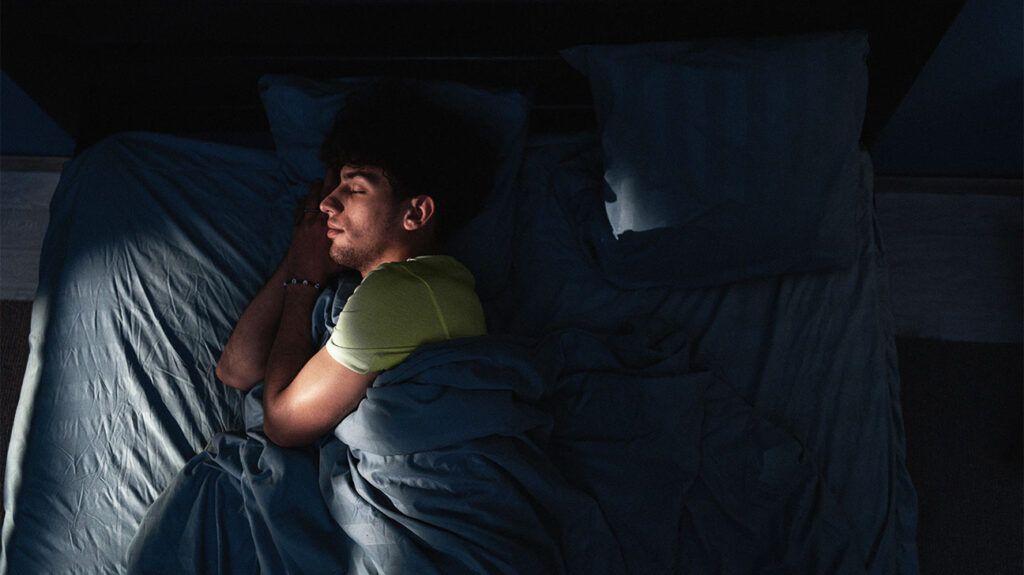Research on melatonin for migraine has had mixed results. However, melatonin is a hormone that can help people fall asleep. If a person finds that sleep improves their symptoms, it could be useful as a sleep aid.
Melatonin is a hormone that the body produces naturally to regulate the sleep-wake cycle. Levels of melatonin increase on their own when light levels decrease at night, causing a person to feel sleepy.
Some people take melatonin as a supplement to increase this feeling and help them fall asleep. Some research has suggested melatonin may have a role to play in migraine. This has led some to try melatonin as a migraine treatment.
Read on to learn what the research says about using melatonin for migraine, including what the connection is and whether it is safe.

A
The authors of the review found that, across the seven studies they analyzed, melatonin reduced headache frequency by 51%, headache duration by 46%, and headache intensity by 53%, on average. These averages include the studies that found no discernible benefit, as well as those that did.
However, another review in 2022 concluded that there is not enough evidence to support melatonin as a treatment for migraine and that more research is necessary.
It is currently unclear what relationship melatonin has with migraine. One theory is that people with migraine may have lower melatonin levels.
However, a 2022 review of past research notes that while some studies have found lower melatonin in those with migraine, others have not.
The authors say that factors such as whether the migraine is episodic or chronic could influence the findings. In several studies, only people with chronic migraine had lower melatonin levels.
More frequent migraine episodes could disrupt the function of a part of the brain known as the hypothalamus, which regulates melatonin.
However, this does not necessarily mean that taking melatonin will address the problem, as it is unknown if low melatonin could be a cause of episodes or a product of them.
Other theories include that melatonin acts as an antioxidant, reducing inflammation, or that it may address sleep disturbances that can trigger migraine in some people.
There is no research that compares melatonin to triptans. However, there is much more evidence proving triptans help stop the progression of migraine than there is to support the use of melatonin. People may need to try both to determine which works best for them.
Triptans are a group of medications used to treat migraine by constricting blood vessels in the brain and changing how the brain processes pain signals.
Many people benefit from taking triptans when they are experiencing a migraine attack. However, these medications do not prevent migraine episodes altogether.
One possible benefit of melatonin versus triptans is that it may cause few side effects. A
There is
Researchers also do not know what the long-term effect of using melatonin to treat migraine may be, as trials have only assessed short-term outcomes.
Most studies investigating the use of melatonin for migraine used a dose of 3 milligrams over 2 to 3 months, with differing results.
After taking melatonin, it takes 1 to 2 hours for it to cause sleepiness. How long it may take to help with migraine is still an area that needs research.
The studies included in a
A 2022 review of studies found that melatonin was not effective after 2 months of treatment, recommending 3 months for treating migraine.
There is
The United Kingdom’s National Health Service advises that people seek advice from a doctor before taking melatonin if they:
- have ever had an allergic reaction to melatonin or another medication
- have any autoimmune disorders
- have kidney or liver problems
People should also check with a doctor before taking melatonin if they take any other medications or supplements, as drug interactions could occur.
People should not give melatonin to older adults with dementia, and it is important to always consult a doctor before giving melatonin to children. Between 2019 and 2022,
The effects of melatonin in pregnancy or while a person is breastfeeding are unknown.
Melatonin can have some mild side effects, but there is not enough research to know if there are long-term side effects.
Short-term side effects
- sleepiness
- dizziness
- headache
- nausea
There is also a risk that people using melatonin regularly could have difficulty sleeping without it, resulting in dependence. However, it does not cause addiction in the way some prescription sleeping pills do.
People should not drink alcohol or use any other depressants while taking melatonin. Doing so could cause extreme drowsiness or affect breathing while a person sleeps.
Because melatonin is a hormone, it is possible it may affect growth and development in children, but this is still unknown.
Quality concerns
In the United States, melatonin is regulated as a dietary supplement rather than a controlled medication. This means the quality and dosage of melatonin products can vary widely.
According to the
This is why it is a good idea to speak with a doctor before trying melatonin. They may be able to recommend trustworthy products that have undergone third-party testing to ensure they are safe.
There is some evidence to suggest that melatonin may be effective at reducing the frequency and severity of migraine episodes. However, the outcomes of research have been inconsistent and there is not yet enough evidence to prove that it works.
Melatonin may have an effect on several of the systems responsible for causing migraine, but more research is necessary to understand if it is possible to use melatonin to treat this condition.
The known side effects of melatonin are mild, but scientists are still unsure what the long-term effects of taking melatonin might be.


